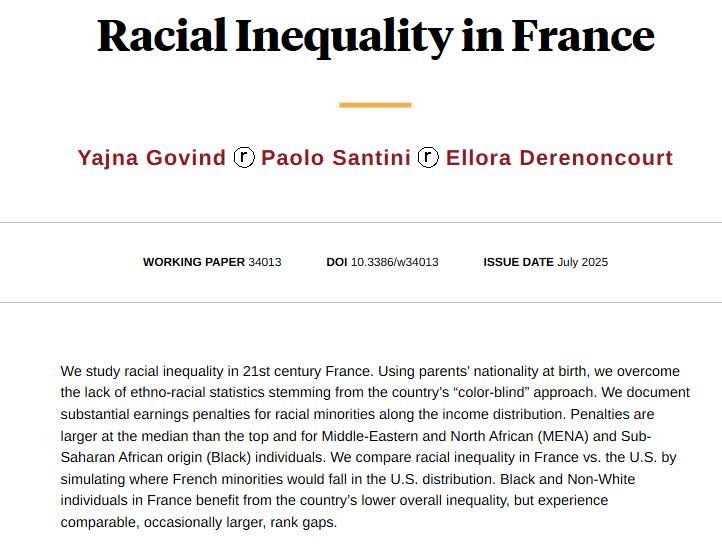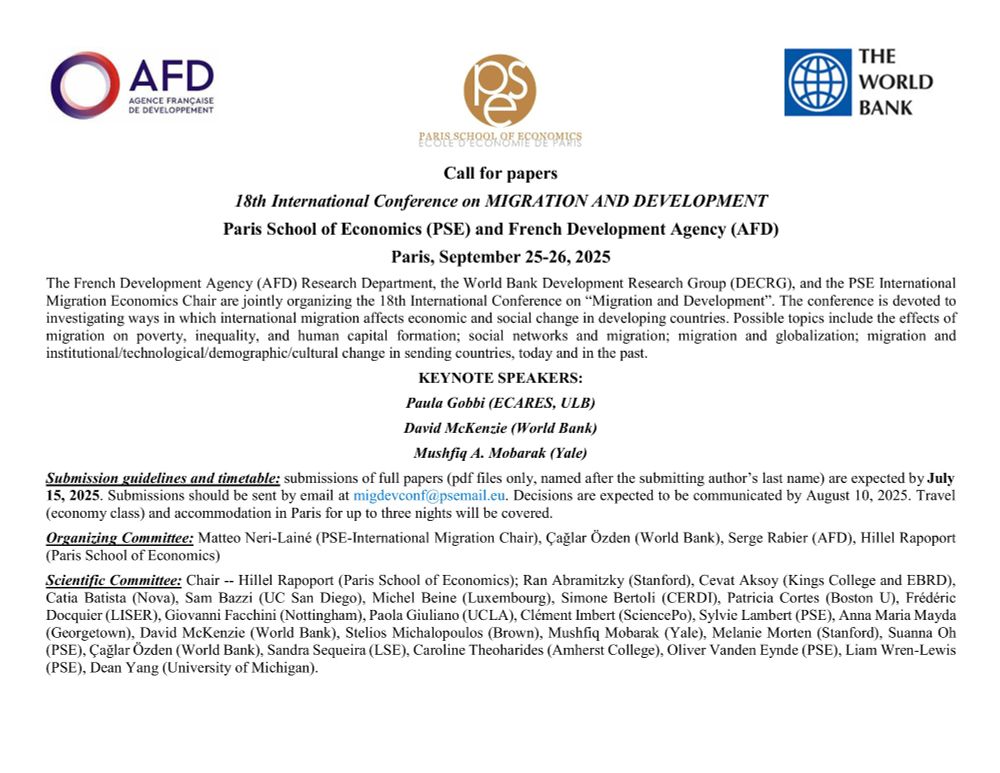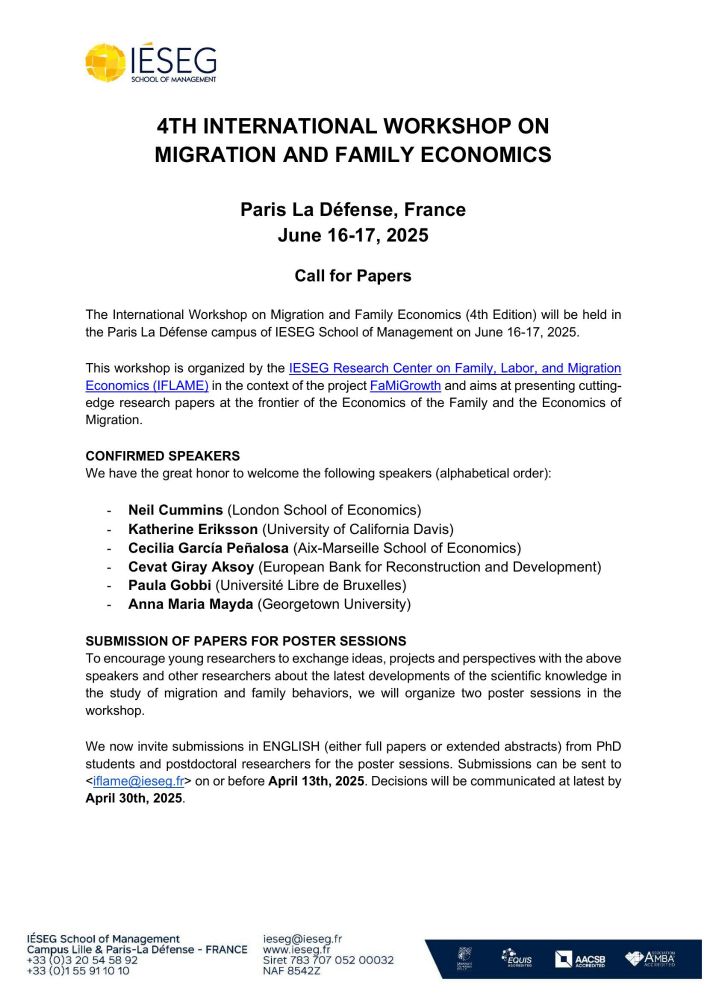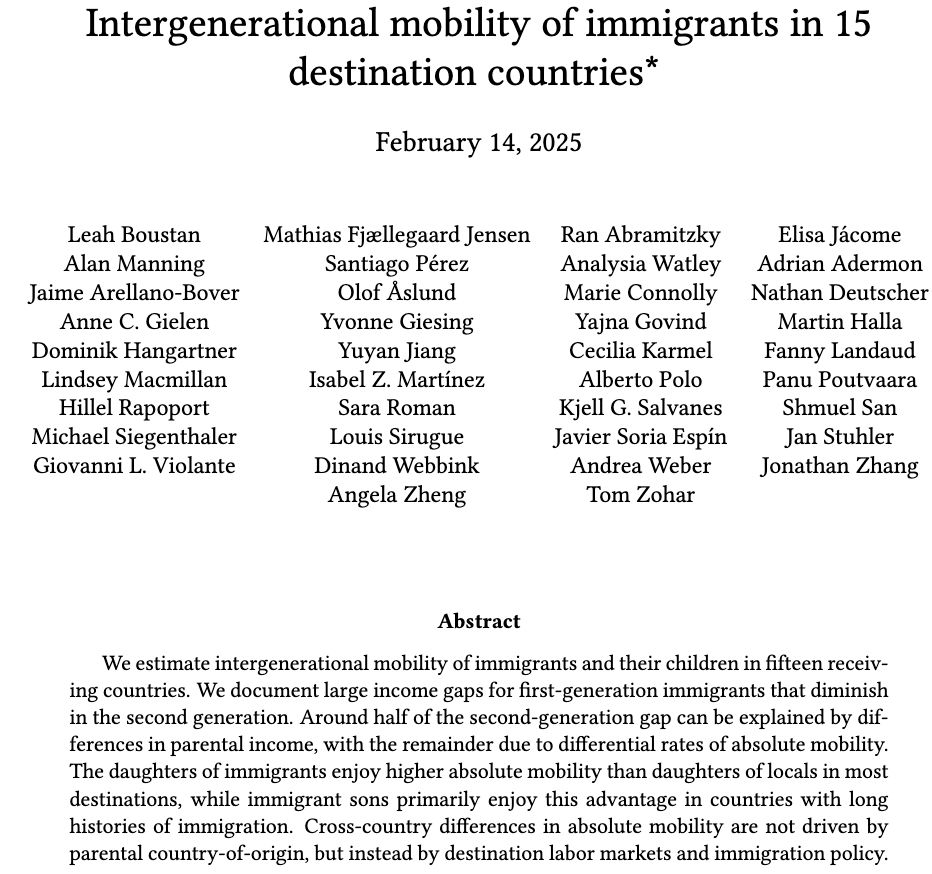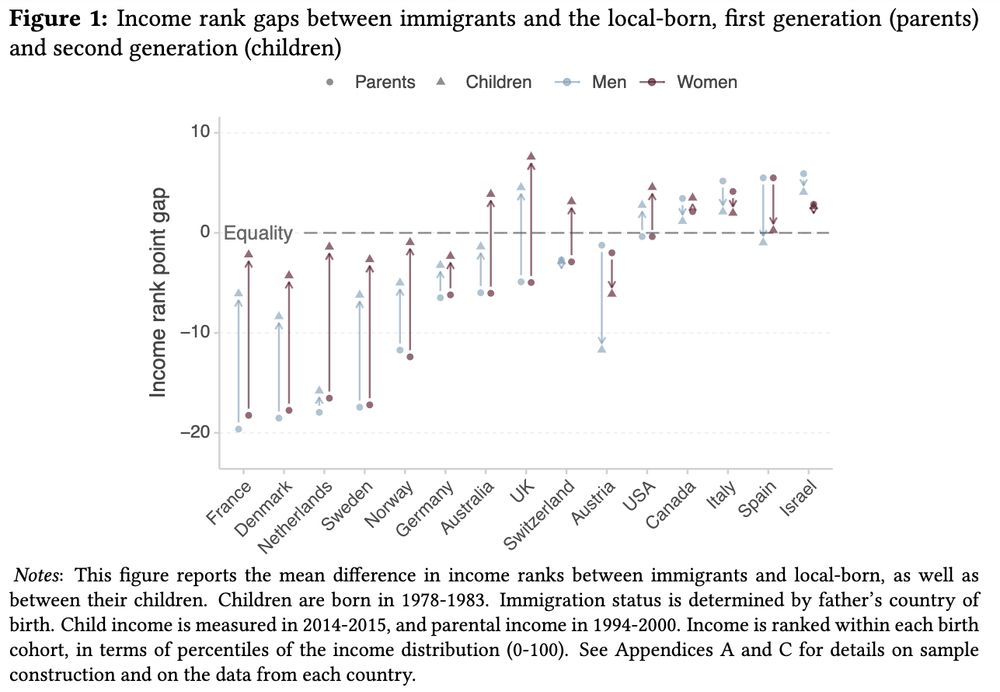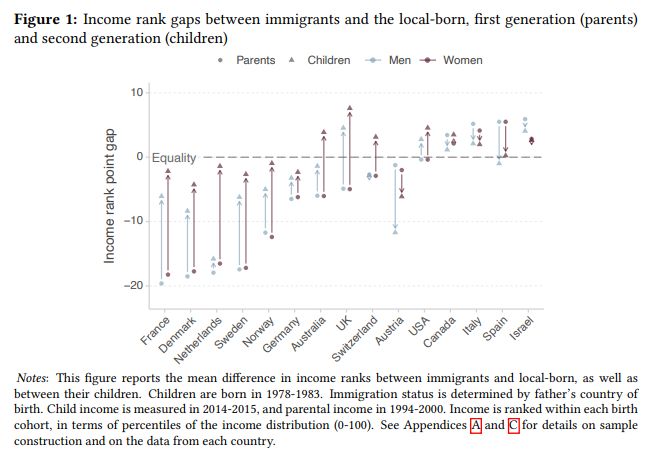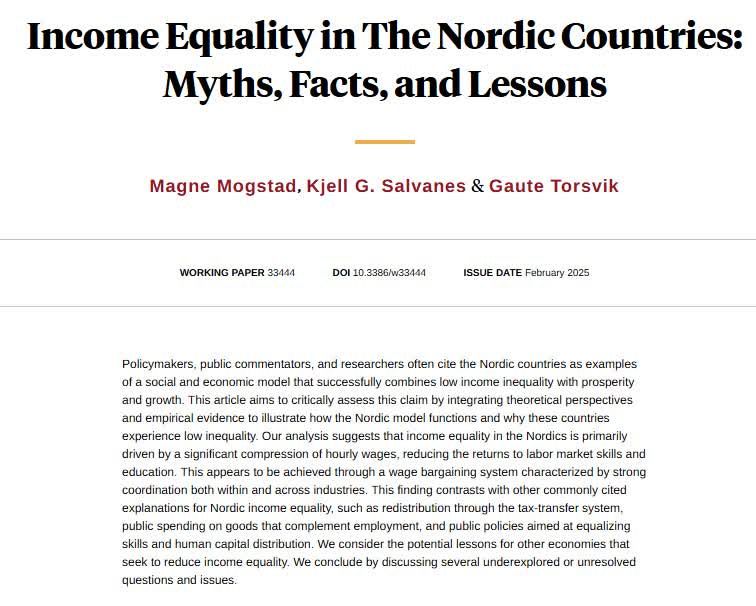Yajna Govind
@yajnagovind.bsky.social
2.4K followers
1.3K following
88 posts
Assistant Prof in Economics (Copenhagen Business School ECON)
Working on migrants' integration (citizenship) & racial inequality
French, Mauritian
Fellow WIL & ICM
Research: Inequality & Migration |
PhD: PSE & INED
Posts
Media
Videos
Starter Packs
Reposted by Yajna Govind
Reposted by Yajna Govind
Reposted by Yajna Govind
Reposted by Yajna Govind
Reposted by Yajna Govind
Reposted by Yajna Govind
Reposted by Yajna Govind
Reposted by Yajna Govind
Reposted by Yajna Govind
Yajna Govind
@yajnagovind.bsky.social
· May 31
Reposted by Yajna Govind
Reposted by Yajna Govind
Max Steinhardt
@steinhardt.bsky.social
· May 26
Reposted by Yajna Govind
Reposted by Yajna Govind
Reposted by Yajna Govind
World Inequality Lab
@wid.world
· Mar 18
Reposted by Yajna Govind
Reposted by Yajna Govind
Yajna Govind
@yajnagovind.bsky.social
· Feb 21
Reposted by Yajna Govind




